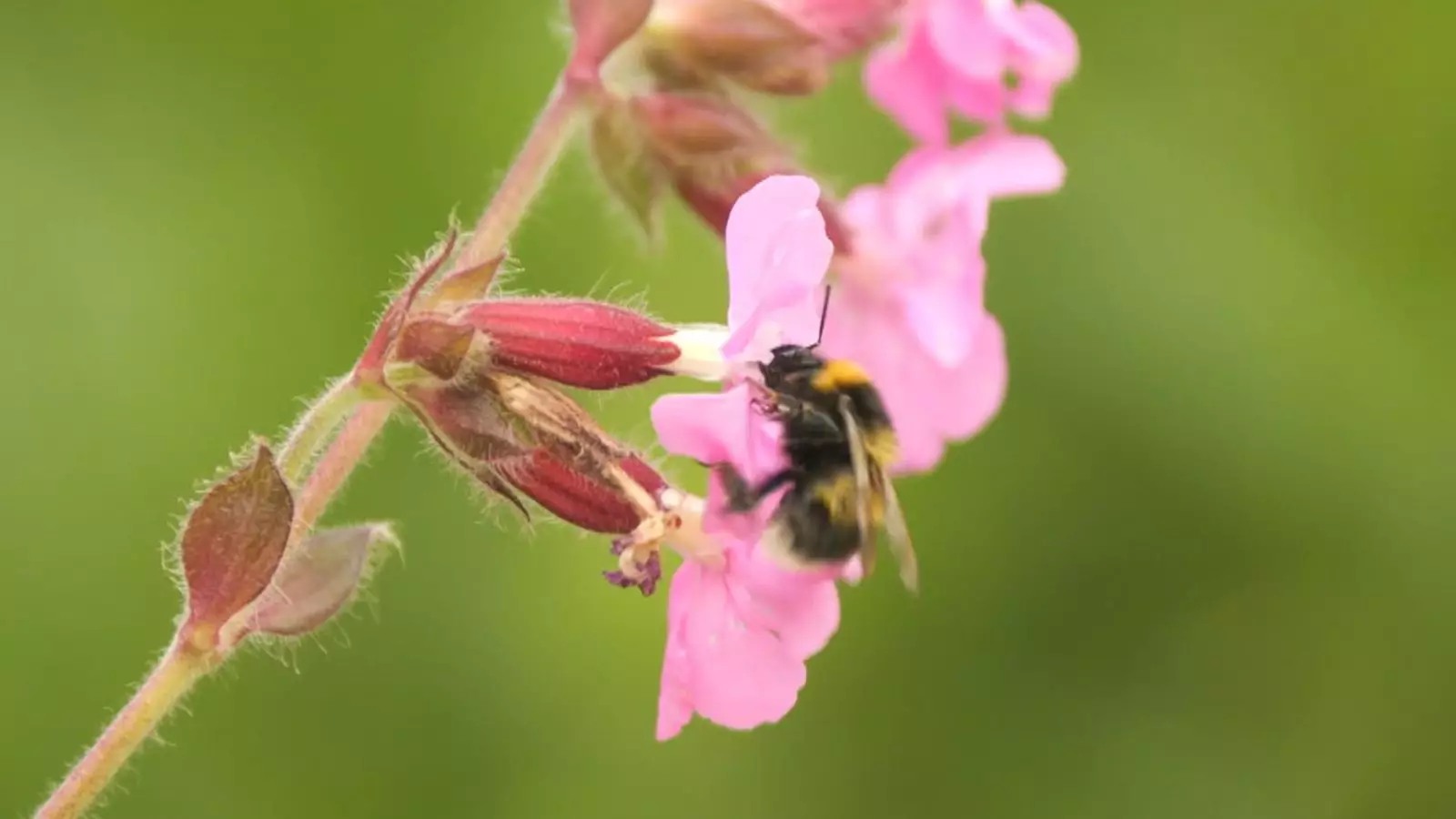In a world increasingly disturbed by human activity, it is alarming to witness the rapid decline of bee populations—a phenomenon that cannot be dismissed as simply another environmental statistic. Current studies from Kew Gardens echo a brooding truth: we are on a precipice. Bees, often overlooked as mere insects, play an indispensable role in the ecosystem, aiding in the pollination of nearly 90% of our flowering plants. Yet, scientific evidence reveals a disastrous decline in flying insect populations in the UK—dipping by about 60% over the last two decades. The broad implications of this loss extend far beyond the aesthetic; they threaten agricultural stability and the fragile equilibrium of biodiversity.
One must confront the underlying culprits of this alarm. Habitat loss, exacerbated by unchecked urban expansion, climate change, and the pervasive use of pesticides, has created a no-fly zone for bees in many areas. The consequence? We are not just losing insects; we are erasing the agricultural backbone that sustains our very existence. As destructive as climate change itself, the crisis concerning pollinators has taken too long to elicit robust, proactive responses from both the public and policymakers.
Innovative Research: A Beacon of Hope
Amidst this turmoil, the innovative research being conducted by scientists at Kew’s Wakehurst site offers a hopeful glimpse into the future. By employing cutting-edge bio-acoustic sensors, researchers are effectively conducting a “bee census,” tracking which trees attract bees the most. This information is crucial for urban planners looking to enhance green spaces in our concrete jungles. Under the guidance of Dr. Janine Griffiths-Lee, this project becomes a formidable weapon in the fight against biodiversity loss. The entomological insights derived from this initiative could empower city planners to cultivate environments that favor bees, directly addressing the challenges precipitated by human expansion.
However, while the urgency of this research is commendable, it must be noted: it is but a bandage on a festering wound. While data on bee preferences can inform tree-planting initiatives, the systemic issues—such as pesticide use and unsustainable agricultural practices—remain inadequately addressed. There is a troubling tendency to treat symptoms while neglecting the diseases rotting our ecosystems. Researchers should not only aim to identify the best trees for bees but also challenge the overarching policies that permit environmental degradation.
A Living Laboratory for Future Generations
The expansive 535-acre Wakehurst estate stands as what director Susan Raikes describes as a “living laboratory.” This title evokes an image of hope and urgency, signaling a significant opportunity for research geared toward sustainable solutions. Scientists are not just passively observing but are actively engaged in a battle against dual crises—the loss of biodiversity and the looming specter of climate change.
The choice of tree species in this innovative study, which includes both native and non-native varieties, raises further questions about ecological integrity. While introducing species from warmer climates may seem necessary for future adaptations, what about the risk of displacing native flora through this experimentation? Will we unwittingly contribute to a more significant ecological imbalance while attempting to mitigate another?
This endeavor certainly reflects an admirable commitment to ecological stewardship. Yet, we must not stop at trees. The focus should extend toward comprehensive ecosystem assessments and integrative approaches that prioritize the richness of native habitats. It is essential to foster multi-faceted conversations around best agricultural practices, sustainable urban development, and overall environmental ethics.
Critique of Societal Responsibility
Ultimately, the responsibility does not lie solely with scientists or city planners; it extends to all of us as stewards of the planet. Individuals, communities, and governments must coalesce around the shared vision of a more sustainable future. Public awareness must be heightened regarding the dire need to integrate environmental considerations into everyday choices. While scientists lay the groundwork for understanding bee behaviors, tangible actions must be taken at the macro level—enacting policies that protect pollinators and their habitats, reducing pesticide usage, and revitalizing ecological corridors in urban areas.
As we stand at the crossroads of ecological crisis and opportunity, the onus is on us to compel action. Without active participation from all societal sectors, the lessons gleaned from research initiatives like those at Kew Gardens may ultimately fall on deaf ears. Time is of the essence; our pollinators deserve every effort we can muster before it’s too late.


Leave a Reply